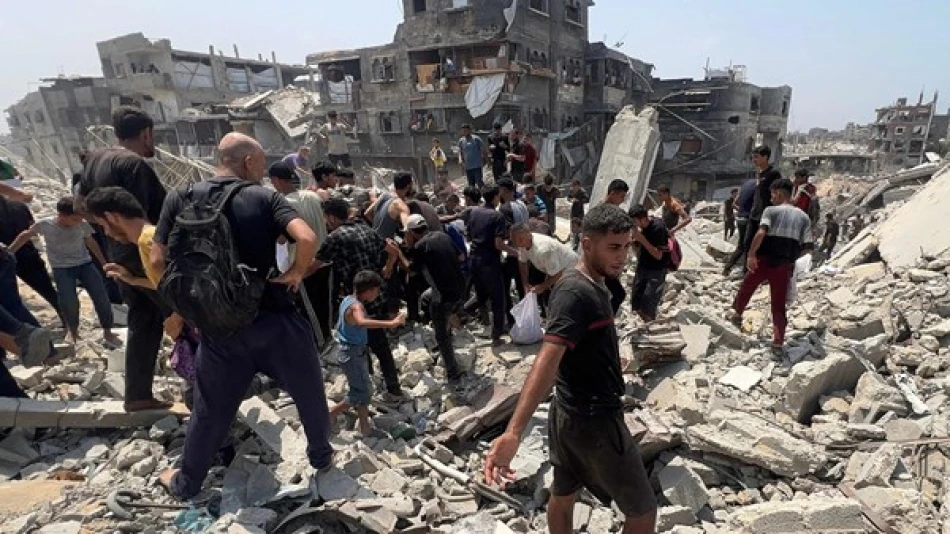
Russia Condemns Israel's Plan to Tighten Control Over Gaza
Russia Condemns Israeli Military Expansion Plans in Gaza as Humanitarian Crisis Deepens
Russia's Foreign Ministry has issued a sharp rebuke of Israel's plans to expand military operations in Gaza, warning that such actions risk escalating what Moscow describes as an already tragic humanitarian catastrophe in the Palestinian territory. The statement marks another diplomatic intervention by Russia in the Middle East conflict, positioning itself as a vocal critic of Israeli military strategy.
Moscow's Strategic Positioning in Middle East Diplomacy
The Russian Foreign Ministry's Saturday statement represents more than routine diplomatic protest—it signals Moscow's continued effort to assert influence in Middle Eastern affairs while Western powers remain largely aligned with Israel's security concerns. By framing the issue primarily through a humanitarian lens, Russia seeks to distinguish its position from both American support for Israeli operations and regional powers' varying responses to the conflict.
The timing of Russia's condemnation is particularly significant as it comes amid broader geopolitical tensions between Moscow and Western allies. This positioning allows Russia to appeal to Global South nations and Arab states while potentially complicating diplomatic efforts led by the United States and European Union.
Humanitarian Crisis as Diplomatic Leverage
Russia's emphasis on the "humanitarian catastrophe" in Gaza reflects a calculated diplomatic strategy. By focusing on civilian suffering rather than taking explicit sides in the Israeli-Palestinian conflict, Moscow can maintain relationships with both regional Arab allies and avoid direct confrontation with Israel, with whom Russia has maintained pragmatic relations despite disagreements.
Regional Power Dynamics
This condemnation places Russia alongside other major powers expressing concern about Gaza's humanitarian situation, including China and several European nations. However, unlike EU statements that typically balance criticism with recognition of Israel's security concerns, Russia's language appears more unequivocal in its opposition to military expansion.
Implications for International Response
Russia's intervention adds another layer of complexity to international diplomatic efforts surrounding the Gaza conflict. As a permanent UN Security Council member, Russia's position could influence future resolutions and peace initiatives, particularly if Moscow chooses to coordinate with China and other non-Western powers on humanitarian aid or ceasefire proposals.
The statement also reflects Russia's broader strategy of positioning itself as an alternative diplomatic power to Western-led initiatives, a pattern evident in its involvement in Syrian peace talks and other Middle Eastern conflicts over the past decade.
Most Viewed News

 Layla Al Mansoori
Layla Al Mansoori






